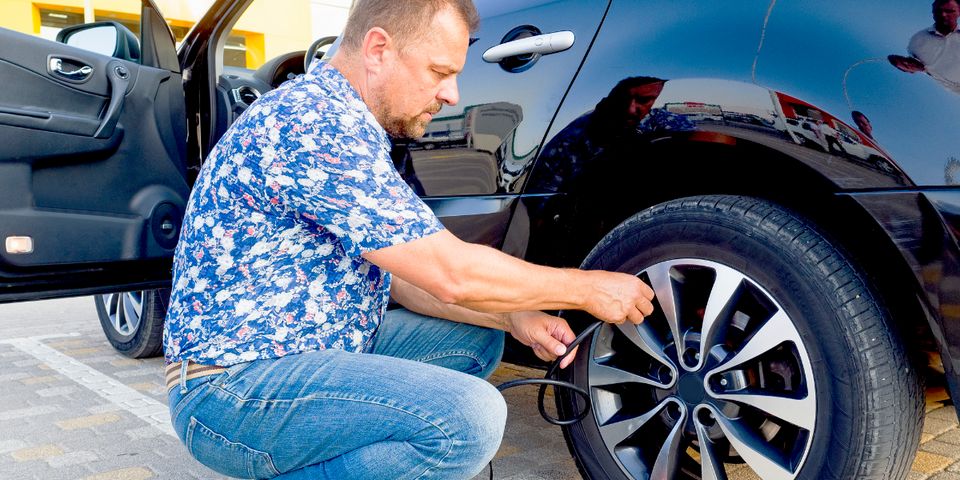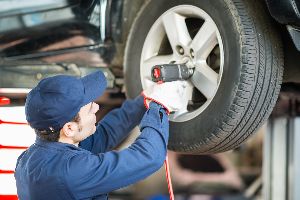What to Do When the Tire Pressure Dashboard Light Turns On

Underinflated tires can create unsafe driving conditions. Thankfully, your vehicle's tire pressure monitoring system tracks the level in each tire; it activates a yellow or amber light on the dashboard when readings drop 25% below the manufacturer’s recommendations. To stay safe on the road and get timely auto repairs, learn more about this crucial system.
Why Is Proper Tire Pressure Important?
Proper tire inflation prevents your vehicle from dragging and reducing fuel efficiency. It also keeps tires from flexing excessively, which can generate extra heat and cause structural damage. A tire that bends too much won't absorb shock, creating a bumpier ride. Not only is this unpleasant, but it can also damage other parts of the vehicle, like the suspension.
Adequate pressure keeps tires in the correct shape to prevent wear on the shoulder, the rounded area between the sidewall and tread. They can then maintain sufficient traction on the road and avoid slipping.
What Should You Do When the Light Turns On?

If the light turns on after starting the car, don’t drive it. Instead, turn off your vehicle and, if the system indicates which tire is affected, check that one. If not, you’ll have to check each with a tire pressure gauge.
Use an air compressor to return any tire with low pressure to the manufacturer’s recommended level. If you don’t have an air compressor handy, but your tire is close to the recommended pressure, drive slowly to a local gas station to fill it.
If the light comes on while driving, pull over and follow the steps above.
However, if a tire makes a hissing sound, head to an auto repair shop to get it repaired or replaced. If the tire pressure light flashes, this could indicate a system malfunction, and it’s best to get it diagnosed by a professional.
To maintain your tires and the rest of your vehicle, count on Sumida’s Auto Repair in Honolulu, HI. This locally owned auto repair shop has taken care of vehicles for over 15 years with services that include checking tire pressure, testing brakes, and repairing oil leaks. Plus, they specialize in handling Mercedes® and Toyota® vehicles, with a factory-trained Mercedes Master technician on their team. Call (808) 533-2994 to schedule an appointment, or find out more about their repairs online.
About the Business
Have a question? Ask the experts!
Send your question

